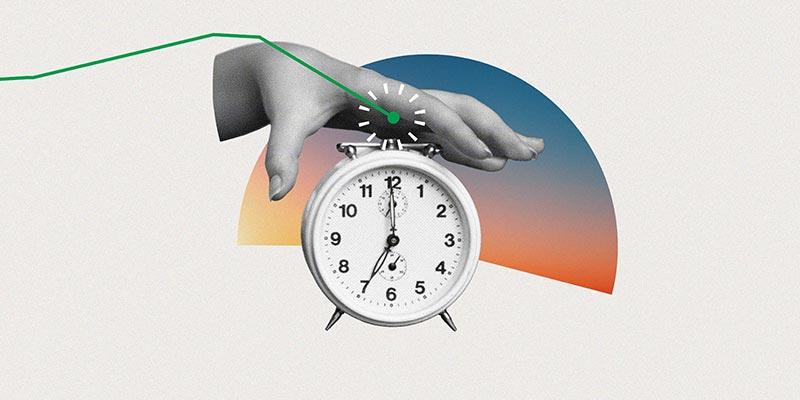Wellbeing
Explore Gallup's research.

The percentage of U.S. adults classified as having "thriving" wellbeing has registered at 48.9% in each of two measures taken since the election.

New analysis from the Lloyd's Register Foundation World Risk Poll shows that millions globally feel uncared for by their neighbors and government.

The latest World Happiness Report explores the impact of acts of generosity on happiness -- just as these deeds appear to be declining worldwide.

K-12 parents are more likely to report negative social or emotional pandemic-related effects on children than academic or physical health problems.

After sliding over the past decade, Americans' reports of their own mental and physical health held steady last year at the lowest levels in Gallup's 24-year trend.

Five years after COVID-19 forced shutdowns, 59% of Americans say the pandemic is over, and 58% worry about another pandemic in the future.

Most Americans now oppose daylight saving time, with support dropping sharply since 1999. Almost half prefer year-round standard time.

After surging between 2021 and 2023, global charitable activity -- including monetary donations, volunteering and helping strangers -- declined in 2024.

As President Donald Trump launches initiatives to reshape the nation in his second term, a recent Gallup poll provides a road map for the issues Americans think need the most attention.

The 44% of Americans who are "very satisfied" with their personal life is at a new low, though personal satisfaction still outpaces national satisfaction.

The latest Hologic Global Women's Health Index shows that for the first time in the survey's four-year history, fewer women are reporting that they were tested for any type of cancer.

Although people worldwide were less satisfied with aspects of their eating experiences in 2023 than in 2022, most continued to enjoy their food and say it was healthy.

Over four in 10 U.S. adults, especially women, see themselves as overweight. Over half want to lose weight, but only about a quarter are seriously trying.

Most Black parents with young children report engaging in activities that bring their family together, such as music and dance and sharing meals and traditions.

Americans' agreement that the federal government must ensure all Americans have healthcare coverage now exceeds 60%, after declining to as low as 42% during the years when the Affordable Care Act was being debated and implemented.

Ukrainians' future life ratings have dropped from 7.9 to 6.9 since Russia's invasion, reflecting growing war fatigue.

Seven in 10 Americans say they would prefer that primary care providers ask about both mental and physical health concerns during appointments.

Most employees don't believe employers are fully committed to improving their mental health and wellbeing. Three steps can repair this disconnect.

Fifteen percent of Americans say they smoke marijuana, according to combined 2023 and 2024 data.

Daily loneliness among U.S. adults has edged up to 20%, its highest level in two years, but remains down from the pandemic high of 25% measured as recently as March 2021.